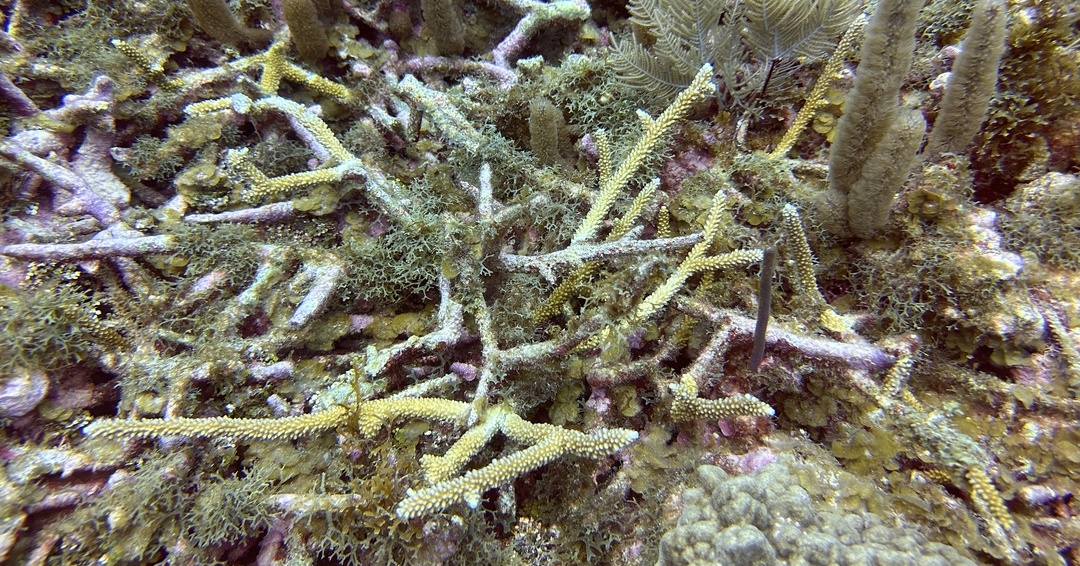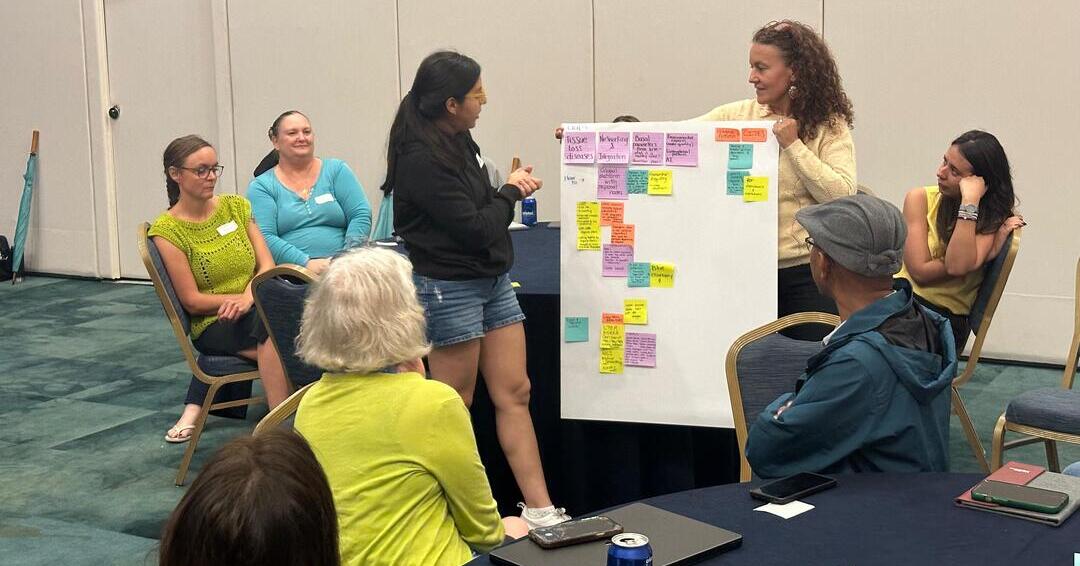Coral conservation experts gathered at a CORDAP workshop in Puerto Morelos, Mexico to discuss the gaps and needs in coral disease research, with the goal of drafting a roadmap to help advance this research field, develop guidelines to prevent disease spread, and identify treatments and cures.
Corals are rapidly declining worldwide. In addition to global threats such as climate change and the associated rising seawater temperatures that lead to mass bleaching and die-offs, local stressors are known to significantly impact the health of coral reefs. Presently, more than 20 diseases have been described from more than 30 coral species. Stony coral tissue loss disease, black band disease, white pox disease, and dark spot disease are among the most common. Despite progress in the study of coral diseases, especially over the last two decades, much still remains to be understood, and efficient means of preventing or mitigating outbreaks are lacking for most identified diseases.
Identifying the gaps and needs in coral research and paving the way to advance the solutions needed to conserve and restore corals and reefs is at the core of CORDAP’s missions. That’s why, as part of an ongoing series of scoping studies, CORDAP co-hosted a three-day coral disease workshop in Puerto Morelos, Mexico, between October 29th to 31st, 2024, together with Universidad Nacional Autónoma de Mexico (UNAM). The meeting brought together not only key coral researchers from around the world but also diseases’ experts on other organisms, to create a roadmap and an action plan for reducing the knowledge gap on coral diseases.

Corals also get sick
Coral diseases usually manifest as abnormal changes in tissue color or skeletal structure, as well as tissue loss. These diseases, often caused by bacteria, fungi, and viruses, can devastate coral populations, leading to widespread reef degradation.
As coral reefs are vital to marine biodiversity, the impact of these diseases extends beyond the ecosystems themselves, affecting also local economies, reducing coastal protection provided by corals, and affecting biodiversity maintenance overall. As the ocean warms and local environmental stress loads increase, the frequency and severity of coral disease outbreaks have also increased, making it critical to enhance our understanding of what is causing the diseases and how they spread, and develop strategies to protect and restore coral reefs for future generations.
Successful coral conservation and restoration initiatives require the full engagement of the local communities, researchers, and practitioners. Also, as coral diseases and outbreaks transcend national borders, a concerted approach encompassing experts from different regions is key to fully acknowledge and understand these local challenges and avoid the spread into areas that remain unaffected. With that in mind, the group included 24 researchers, restoration practitioners, and early-career coral conservationists, coming from eight countries (Brazil, Colombia, Germany, Indonesia, Mexico, Saudi Arabia, Taiwan and USA).

.
Identifying gaps and needs in coral disease research
Coral diseases have become a major concern for the health of reef ecosystems globally. The CORDAP Coral Disease Workshop sought to tackle this problem by fostering collaboration between experts in pathology, microbiology, physiology, and ecology. By bringing in perspectives from other marine diseases (e.g., sponge) and the veterinary fields, the workshop aimed to broaden the scope of coral disease research, highlighting areas for improvement and innovation.
The key objective was to create a roadmap for future coral disease research. This will serve not only to guide future research endeavors but also to develop concrete strategies that can help mitigate the effects of coral disease outbreaks on ecosystems and livelihoods.

Research, prevention, and collaboration
The fruitful discussions throughout the workshop resulted in several key insights and recommendations. Among the most pressing suggestions were:
- Standardized protocols: One of the foremost needs identified was the development of standardized protocols for diagnostics and rapid response strategies to deal with coral disease outbreaks. Such protocols would streamline efforts to detect and respond to coral disease in a timely and efficient manner.
- Research on disease treatments and prevention: There was a strong consensus on the need for more research into disease treatments and, ideally, preventative measures. While the focus has often been on addressing outbreaks once they occur, finding ways to prevent disease in the first place could be a game-changer for coral conservation.
- Global hub for data and technologies: Participants emphasized the need for a central global hub to host coral disease protocols, data, and technologies. This platform could serve as a resource for researchers and conservationists worldwide, enabling better sharing of knowledge and best practices.

Next steps: paving the way to healthier reefs
Looking ahead, the next few months will be dedicated to drafting a technology roadmap that encapsulates the findings and recommendations from the workshop. Francisco Medellin, a post-doctoral researcher from Mexico, will work closely with the organizing committee and attendees to lead the comprehensive document. This publication will outline the priorities and key takeaways identified during the workshop, offering actionable steps for advancing coral disease research and management worldwide.
In addition to the roadmap, at least two peer-reviewed publications will also emerge:
- One high-level perspective paper will summarize the key findings and strategies discussed at the workshop.
- Another article will dive deeper into existing protocols, datasets, and the potential for leveraging these resources to further advance coral disease research.
Inclusion and diversity
We recognize that solving global coral challenges requires diverse perspectives and have continued to prioritize inclusivity and diversity in our workshops. This time, we gathered attendees from eight different countries, spanning key coral reef regions (e.g., Caribbean, Red Sea, Coral Triangle, East Asia, and the Pacific Islands). In this workshop, 63% of participants were female and 42% came from lower- or middle-income countries.
By prioritizing gender balance and inclusion from underrepresented regions, CORDAP reinforces its commitment to creating a more equitable and effective global response to coral conservation.
Participant affiliations:
• Academia Sinica, Taiwan
• Arizona State University, USA
• Brawijaya University, Indonesia
• CINVESTAV, Mexico
• CORDAP, Saudi Arabia
• Cornell University, USA
• George Mason University, USA
• King Abdullah University of Science and Technology, Saudi Arabia
• National Research and Innovation Agency, Indonesia
• Perry Institute of Marine Science, Colombia
• Qatar University or Smithsonian-Fort Pierce, USA
• UNAM-Puerto Morelos, Mexico
• University of North Carolina, Wilmington, USA
• University of Tennessee, USA
• University of Texas, USA
• University of New South Wales, Australia
• United States Geological Survey, USA
• Woods Hole Oceanographic Institute, USA
Learn more about our work to support 22 coral research and conservation projects in the field and find out how you can join #TeamCoral
Photos credit: Bárbara Ribeiro

